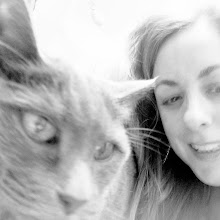 For part one, click here
For part one, click hereAs with Steve Buscemi, I spoke
with writer/director Bülent Akinci
for The Stranger during the 33rd Seattle International Film Festival. In order to keep things brief, I only posted a small portion to Slog. Here is the rest of our conversation. Parts are translated from his native German, hence Akinci's short answers—which make my long questions seem even longer!
*****
I was really struck by the editing of your film [Running on Empty]. I'm assuming you worked with an outside editor?
Yes. Part of how we edited it—I wanted audience members,
at some point, to see things from the character's point of view.
[The film was edited by Tina Baz and Inge Schneider.]
That works really well. I like it that the transitions instead of being smooth, from scene to scene, a lot
of times they would make me go, 'Wait a sec—where
are we, what's going on?' Then they would start to
make sense. I could tell you weren't just going crazy,
but that there was some forethought to what you
were doing. So often filmmakers use cinematography
to disorient the audience, whereas you achieved that effect through editing. And it's also unlike Tom Twykwer, who does a lot of time-lapse stuff. That's
an entirely different technique. Can you think of other films where you might have seen that style of editing?
I also worked [like that] with my short films. I like to
edit my films a little bit like French editing—montage.
The French New Wave?
Yes. I'm always trying to do montage.
There's a documentary at the festival this year
about Walter Murch, who touches on that. He
talks about the scene in Breathless, where two characters are in a car, and instead of the camera
just following them down the street, there's a shot,
then a jumpcut, and then another jumpcut... It
hadn't occured to me you were doing a version
of that. So, because SIFF is focusing on Germany
this year, and also since The Lives of Others won
the Best Foreign Film Oscar, do you feel like
there is a New New Wave in German filmmaking
right now—or some kind of resurgence?
Yes, we saw The Lives of Others winning the Oscar. It has happened many times in Germany. In earlier times, you
had Fassbinder and Werner Herzog—who you mentioned—
now there are so many directors trying different ways of storytelling. Like in America, there are many different ways
to tell a story. In Germany, it's just beginning. I think that's why my film failed. People were not used to seeing that kind of film... Therefore, Tom Twykwer, [Florian Henckel von] Donnersmark, Oscar Riller—they're beginning to start a sort of New Wave.
I've seen a lot of really good German films lately.
The ones that make it to the US usually concern
German history—Downfall, Sophie Scholl, The
Lives of Others—but we don't always get to see
those that are more personal or more intimate.
And these films are fascinating, but I wish we were
seeing more, with the exception of Fatih Akin, who
is doing his own thing. Have you seen his new film?
No. Have you seen it? No. It [The Edge of Heaven]
No. It [The Edge of Heaven]
just played at Cannes, but
I don't think it's played in
the US yet. Do you think if
you had stayed in Turkey,
you could have done the same things in terms of filmmaking?
[Like Akinci, Akin is a German
citizen of Turkish descent.]
No.
Do you think Nuri Bilge Ceylan is an exception in
getting to make the kinds of films he wants to make?
Turkey is also beginning [to produce] a new wave of
filmmakers, but most of... When you want to be a director,
it's a luxury profession, so most of the directors in these countries—poor countries—come from rich families. I don't
come from a wealthy family, so I tried at the beginning of my
life to be a musician, but I failed, so after that I studied film.
In Turkey, I don't think I would've had that opportunity.
So, it's more democratic [for directors] in Germany?
Yes.
It's good your parents moved there. [laughs]
Endnote: Part three to come. Images from Spielfilm.de (Jens Harzer, looking crazy) and The Sofia International Film Festival (Bülent Akinci, looking calm). This marks my 200th post!

No comments:
Post a Comment